2018-10-07
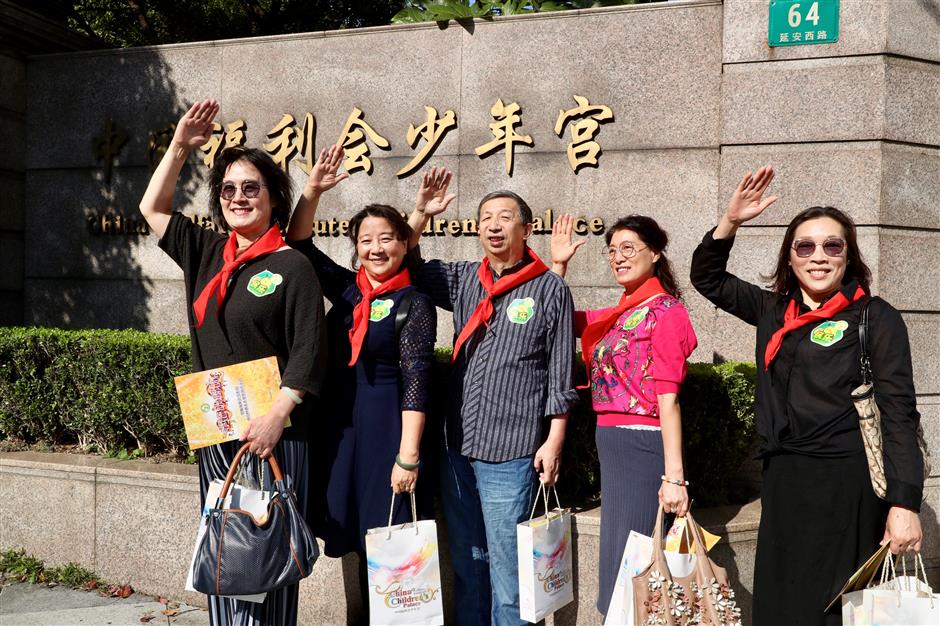
Five former students of the China Welfare Institute Children's Palace who took part in celebrations for its 65th anniversary on Saturday.
More than 200 former students gathered at the China Welfare Institute Children’s Palace on Saturday to celebrate its 65th anniversary.
It was set up on June 1, 1953 by Soong Ching Ling, late honorary president of the People's Republic of China, and was the first comprehensive public after-school educational organization in the republic.
The former students met with old friends, visited the classrooms where they had studied and performed with current students.
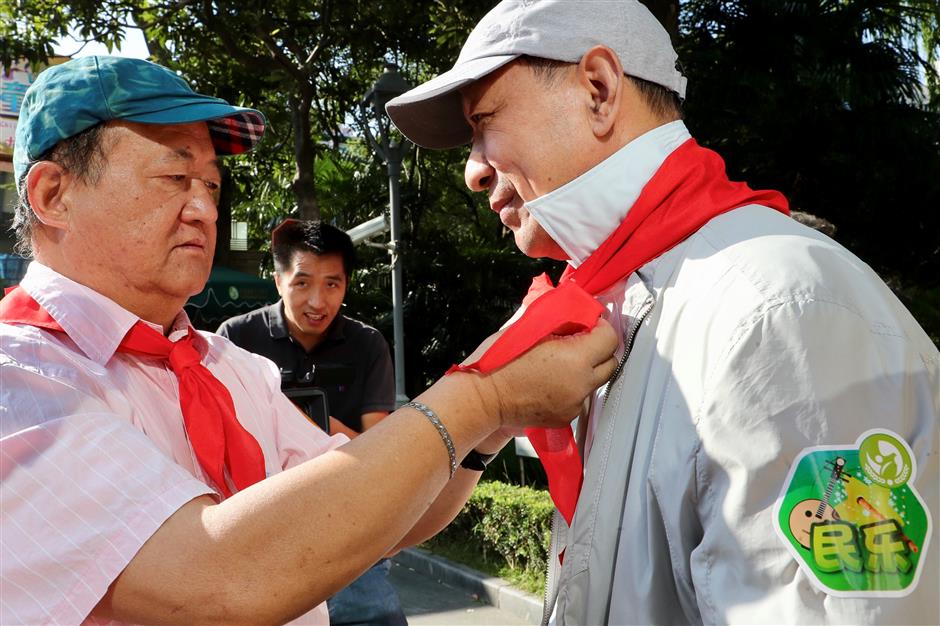
Former students help each other with putting on red scarves in memory of their childhood days.
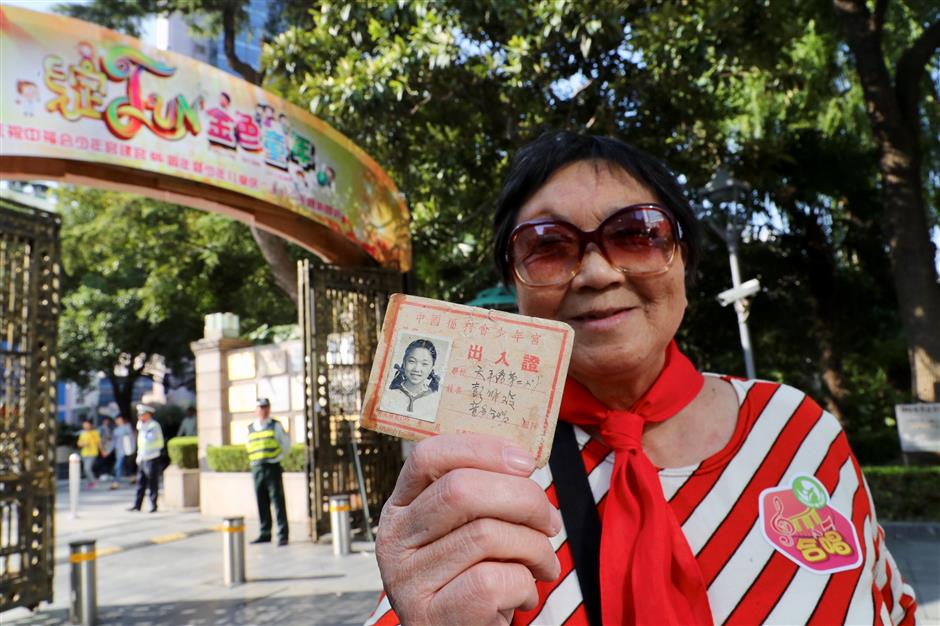
A woman shows her pass for the children's palace.
“The Children’s Palace was a dreamland when I was a child,” said 76-year-old Qiao Zhen, a voice-over artist. “I used to detour to the palace on my way from school to home almost every day when I was a primary school student. I admired the happiness of children studying here and was feeling it is a hallowed hall.”
Qiao was put in a drama group when he went to middle school as he had won a speech contest at primary and, in 1956, it was recommended he study drama at the children's palace
“I studied here only for about one year and I have almost forgotten what drama I have played here,” he said. “But I always remember that the tutors here taught me to perform with true feelings, which I insisted on in my dubbing career and I do cherish my memories of the life here.”
Qiao was admitted to the Shanghai Theater Academy after impressed teachers there with his performance in a drama upon his graduation from high school. He worked at Shanghai Film Studio and was known for dubbing foreign films, such as “Waterloo Bridge,” “Notorious” and “Yesenia.”
His wife, his son and his granddaughter all studied at the children’s palace.
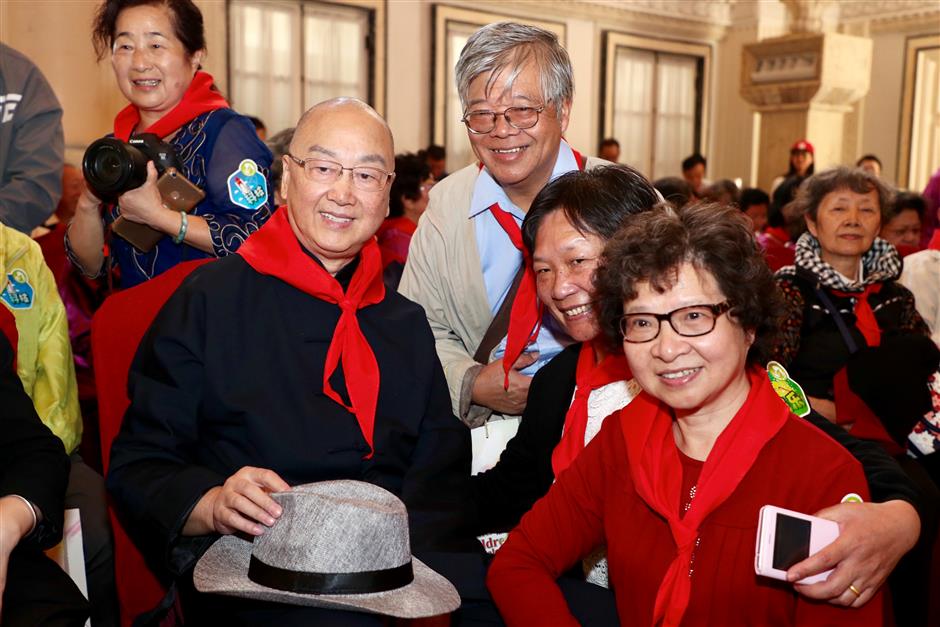
Voice-over artist Qiao Zhen, with hat in hand, meets his former friends at the children's palace.
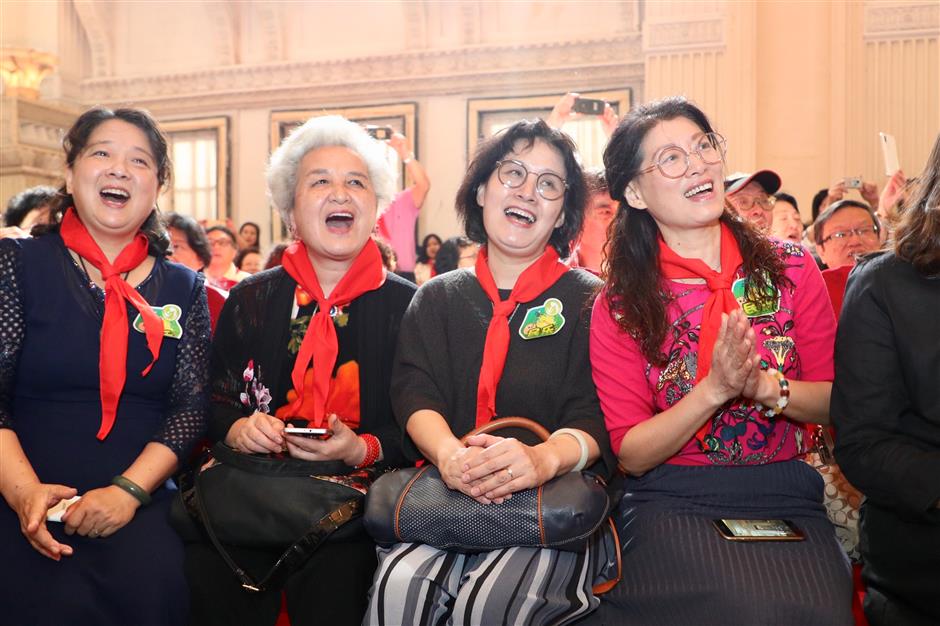
Four former students of the children's palace sing a song during the celebration.
Tan Binglin, 78, was one of the palace's first students, studying chemistry in 1953.
“We did not learn advanced knowledge with regular classes here,” he said. “We learned by doing interesting experiments and playing. I still remember that the first experiment I did was to carve patterns on glass, the principle of which was same as making semiconductors. It enlightened my interest in chemistry and the curiosity to explore everything.”
Yu Baozong, 86, who taught science, said the most precious thing, which regular school could not offer, was to tap the potential interests and capabilities of students.
“Students who are good at remembering knowledge may not be good at applying,” he said. “By using the knowledge in the after-school activities here, they can develop skills that they cannot learn elsewhere.”
Most of Yu’s students later worked or are still working in scientific research institutes.
Wang Songzan, 67, who taught computing, is proud of the facility’s role in popularizing computer science.
In 1984, China’s then leader Deng Xiaoping said more children should be taught computing after he had visited the place and watched children playing on computers.
Wang said the place developed the country’s first textbooks on computers and trained teachers from all over the country.
At the beginning, there were not enough computers and tutors drew keyboards on paper for students to practice.
Today, more than 100 of Wang’s students are working abroad, including 21 in Microsoft, including Li Jin, a partner researcher manager at the US company.
Zhu Dajin, a former recital student, said the palace had given her a “golden childhood” and benefited her throughout her life.
The children’s palace, known as a “golden cradle” for young people's healthy development, is still popular today. Every time it announces recruitment for new classes, the places are snatched up in seconds. Every year, it offers about 40,000 places in classes in more than 70 categories to children aged from 4 to 16.
On Saturday afternoon, about 350 families experienced 20 of its classes, such as science, the game of Go, drama, computing, musical instruments, dance and painting.
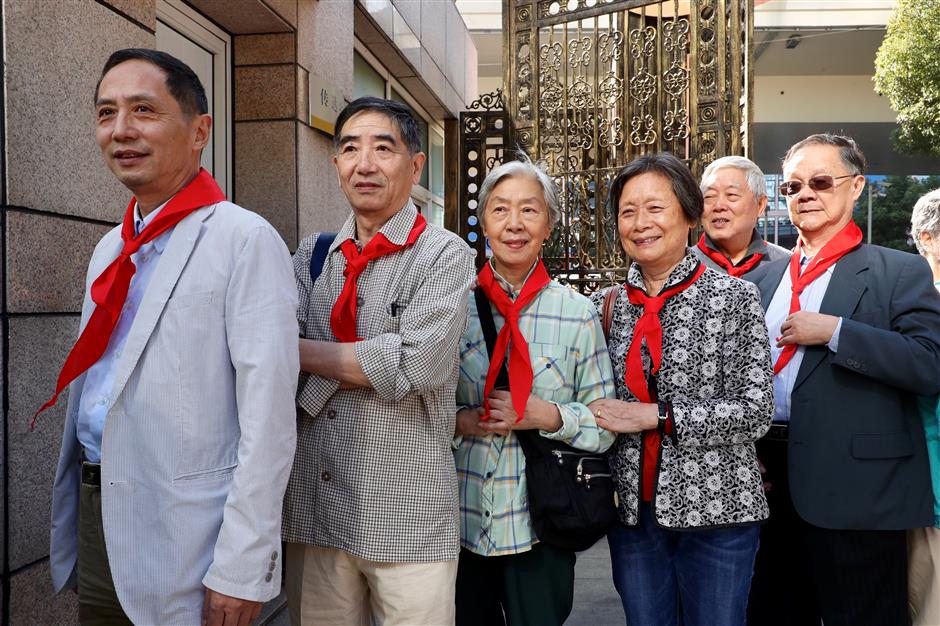
A group of former students who were at the China Welfare Institute Children's Palace on Saturday to celebrate its 65th anniversary.
Source: SHINE
Editor: Shen Ke